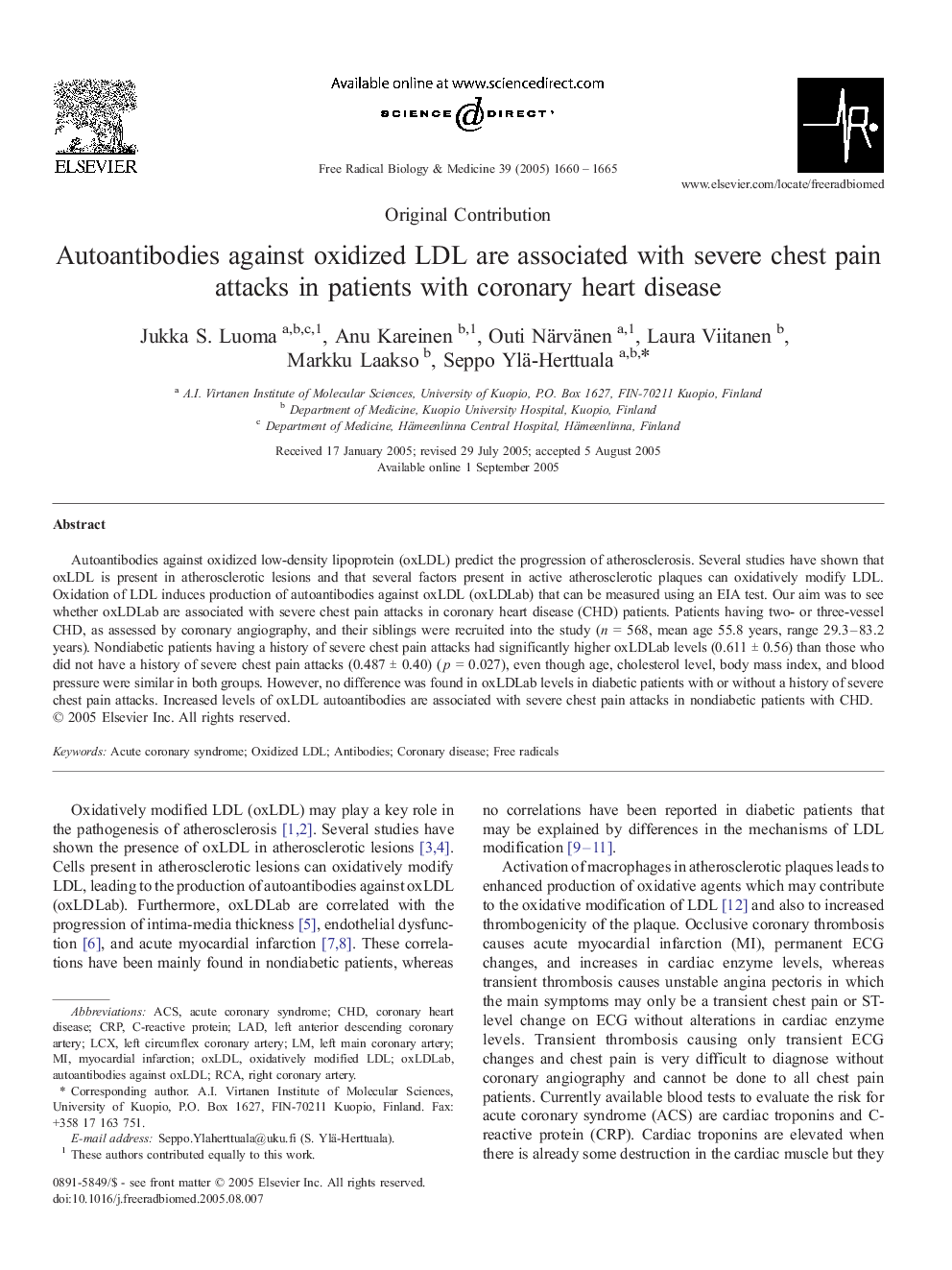| Article ID | Journal | Published Year | Pages | File Type |
|---|---|---|---|---|
| 10739383 | Free Radical Biology and Medicine | 2005 | 6 Pages |
Abstract
Autoantibodies against oxidized low-density lipoprotein (oxLDL) predict the progression of atherosclerosis. Several studies have shown that oxLDL is present in atherosclerotic lesions and that several factors present in active atherosclerotic plaques can oxidatively modify LDL. Oxidation of LDL induces production of autoantibodies against oxLDL (oxLDLab) that can be measured using an EIA test. Our aim was to see whether oxLDLab are associated with severe chest pain attacks in coronary heart disease (CHD) patients. Patients having two- or three-vessel CHD, as assessed by coronary angiography, and their siblings were recruited into the study (n = 568, mean age 55.8 years, range 29.3-83.2 years). Nondiabetic patients having a history of severe chest pain attacks had significantly higher oxLDLab levels (0.611 ± 0.56) than those who did not have a history of severe chest pain attacks (0.487 ± 0.40) (p = 0.027), even though age, cholesterol level, body mass index, and blood pressure were similar in both groups. However, no difference was found in oxLDLab levels in diabetic patients with or without a history of severe chest pain attacks. Increased levels of oxLDL autoantibodies are associated with severe chest pain attacks in nondiabetic patients with CHD.
Keywords
Related Topics
Life Sciences
Biochemistry, Genetics and Molecular Biology
Ageing
Authors
Jukka S. Luoma, Anu Kareinen, Outi Närvänen, Laura Viitanen, Markku Laakso, Seppo Ylä-Herttuala,
